Kate Bowler: Hi, I’m Kate Bowler, and this is Everything Happens. Look, the world loves us when we are good, better, best. But this is a podcast for when you want to stop feeling guilty that you’re not living your best life now. We’re not always celebrating our Zen like mindest. I used to have my own delusion of living my best life now. I’m a Duke professor, wine and cheese enthusiast, wife and mom. Instagram gold. Then I was diagnosed with stage four cancer. That was four years ago and I’m still here. And now I get it. Life is a chronic condition. The self-help and wellness industry will try to tell you that you can always fix your life. Eat this and you won’t get sick. Lose this weight and you’ll never be lonely. Believe with your whole heart and God will provide. Keep this attitude and the money is yours. But I’m here to look into your gorgeous eyes and say, hey, there are some things you can fix and some things you can’t. And it’s OK that life isn’t always better. We can find beauty and meaning and truth, but there’s no cure to being human. So let’s be friends on that journey. Let’s be human together.
Kate Bowler: Parenthood is one of the great acts of humility. We feel called to greatness. I’m going to be the best mom. He’s going to be the best dad. And we find ourselves mired in one of the most fundamental revelations of procreation. There is no winning in parenthood. Our best never feels good enough. This can range from the trivial to the dramatic. I remember when I’d come home from the hospital attached to a chemotherapy pack and I couldn’t pick up my toddler, so I’d pull off my socks and try to entertain him with sock puppets. Other times I had to just go lie down. World’s best mom. It felt awful. In this community, we have people whose kids suffer with mental and physical illness, learning disabilities, social isolation, incarcerated loved ones, suicidal ideations. Parenting is a gauntlet of managing the precarity of our humanity. Parenting is not just a circus, it’s the theater of life itself. And then sometimes you just have to say, what the hell? This is hard. Can someone give me a permission slip to do this imperfectly? Well, if that’s you, let me introduce you to a new friend, Kristen Howerton. Kristen is a Marriage and Family Therapist and has righteously earned the title of her new book, Rage Against the Minivan, by becoming the mom of four kids in only four years. We should say from the outset, however, that she lost her battle against the minivan in 2010. She reports that it now sits in her driveway covered in crushed Cheerios and remnants of her self-esteem. So here at the Everything Happens project, we have extremely strong feelings about the American myth of perfectionism and what better way to talk about it than with a mom, therapist and author who has declared war against the phrase world’s best mom. Kristen, I am so grateful to be talking with you today.
Kristen Howerton: Well, I am so glad to be talking to you.
K.B.: You say an amazing thing. You say, I was an amazing mother before I had kids. What did you mean by that?
K.H.: I was so good at it before. You know, I just imagined myself as this mom who is just going to be like super breezy, and like wear linen and just have my kids on my hip and like, probably an organic baby carrier. And then they would be quiet and like we would go to art museums and eat in meadows.
K.B.: All your photos would be on those photo couches for every Christmas photo.
K.H.: Yeah, I would just my life would just look like an Instagram feed with, like, one of those really bright filters on it. Kind of hazy and bright, you know.
K.B.: Where you are constantly just a little surprised, like your eyes come alive and you’re like, oh, this?
K.H.: Oh this? Me? This kid? This like super easy kid that’s just like hanging on my knee and not playing with, like an electrical outlet?
K.B.: And like for people who might not know your story, I mean, you were one of the, you’re one of the original, I’m trying to make it sound like it does not sound weird, but like you were one of the original mommy bloggers like.
K.H.: It sounds weird because it’s weird, but it is.
K.B.: It’s not, it doesn’t sound weird, but I just wasn’t sure how to say it. You were, you’re like, you’re really one of the original mommy bloggers that everyone looked to to say, like, am I doing this right? And I’m sure that was like a tricky dynamic to say, am I built from the outside in or am or am I built from the inside out?
K.H.: Well, yeah. And that was a weird experience, too, to have people looking at me. I mean, I don’t know what I’m doing. So I you know, I almost felt like my way of like pushing out of that burden was just to be like, yeah, I’m kind of a mess, too.
K.B.: I remember the first time I felt that tension where I think maybe it was because with colon cancer, oftentimes you can keep your hair, at least with the chemo that I was on. And I remember the sicker I got, the thinner I got. And I still had my hair. And people would say, like, you know, you look so good. And I worried honestly, because I’ve dealt with the loneliness of my situation, like oftentimes like through social media and the people who have been the community around this podcast have really helped me manage that isolation of my experience. But it kind of felt like I didn’t want to lie to them by everything, because it looked, it looked better than it was.
K.H.: Right.
K.B.: It was crap like it was it was death, but it looked really good on Instagram.
K.H.: I mean, obviously completely different circumstances. But I’ve I felt that so much, too. And just like man there’s a lot of parts of this that can look good if I’m not telling the story, which is why I felt like telling the story was important.
K.B.: That’s right, showing the inside part, the just, yeah, we’re such a visual culture now, though. It is so hard to show each other who we really are in those moments.
K.H.: It feels like we have to be like either overly precious.
K.B.: Yes.
K.H.: Or we have to be overly like whatever is like I’m a hot mess, Mom. And don’t most of us live somewhere in the middle?
K.B.: You’re right. That’s like a complete, both are like tropes right? They’re like fully articulated, you’re either, like, you know, angry wine, mom. Or you’re like, no big deal. I started this martini at two or you’re like, every kid is in gingham and your husband has never said a bad word about you when you’re not there.
K.H.: Yeah. And so I’ve just really always tried to just kind of represent both, like all of that. You know, I, I mean, and to say when things are bad, like I remember there was one Valentine’s Day where I had just gotten a divorce. So, you know, not not maybe my best day. And I took the kids out to eat because I was like, we’re going to you know, we’re going to have a nice family time together and we’re just going to go to this nice restaurant. And it was like, I can’t even explain how disastrous the dinner was, like not just their behavior, but like during the dinner I got a text like one of my kids was engaged in, like, really problematic behavior. And it was just like this night of like, oh, I don’t know that this could get worse. But I did snap a really cute photo as we were walking out of the restaurant. And so I felt like in the caption, I was like, hey, here’s the backstory to this photo. Here’s all the things that happened at dinner and three or four of us cried at the table.
K.B.: We used to have a Christmas family tradition that, like no one could leave the dinner table at Christmas unless one of us cried. I was so embarrassed when I realized that. And then I realized, like, oh the last one that cried was me.
K.H.: Well, you know, it happens.
K.B.: You have a very soft, tender heart for people who for whom motherhood has been really painful. There’s a like a lot of people in our listener community here who’ve suffered a great deal with infertility and miscarriage. And that’s a big part of your story.
K.H.: You know, I went to college, I went to grad school and I made good grades and I went into practice and I had a successful practice and I was just ticking off all the boxes. Right? Like I was, you know, OK, I’ve got this. And then I got married and it’s like, OK, I’m on my trajectory. This is what I’m going to do with my life. And the next step is kids. And it should be easy. Right? And it wasn’t it really wasn’t easy at all. I struggled with infertility, so I struggled to get pregnant. So it would usually take me about a year to get pregnant. And then I lost my first six pregnancies in a row. And that, you know, that was really devastating for me because it felt like it felt like a betrayal of my own body, like my body wasn’t doing what I wanted in life. And, you know, I think for me, it you know, I was in my late 20s. It was just it was my first confrontation with, like, real loss.
K.B.: Yeah.
K.H.: It was also difficult because, you know, I was at the time, I was a pastor’s wife. I was deeply entrenched in religious circles. And I felt like I was getting messages from friends that were kind of around like, well, you know, you just got to have enough faith or you really got to trust God on this. And it felt like people were basically telling me, like, if I had enough faith. That maybe this wouldn’t be happening or maybe the outcome would be different. And that was really painful. That was really painful. You know, I can even remember there was a point my husband was on staff at the church that someone had said to my husband, another pastor had said, your wife’s grief is really loud. Because I was, I was struggling, I was struggling, and I was not super quiet about it. And when people were starting to hand me the tropes of, like, you just gotta trust God, I would I would push back. You know, I would say, like, I don’t know, the God is going to grant me this. And I’m still in pain.
K.B.: Yes, totally. Totally. Actually, the unfairness of this is still ongoing. But thanks.
K.H.: Yeah. And so it was a bit of a personal crisis of faith. But then it was also sort of like this difficult, lonely space of being in a lot of pain and feeling like I wore out the statute of limitations on pain with my church community.
K.B.: Oh my gosh. And that volume metaphor is like so intense. I’m sorry that your, but your tragedy is too loud for us.
K.H.: It felt a little bit like people wanted me to, like, tone it down because, like, it looked and felt bad for Christianity. Right? Like here one of our pastors wives is really struggling and like let’s not lean into that.
K.B.: But God is a good God. So let’s just move on.
K.H.: Happens all the time, just don’t look over here, don’t look at this lady.
K.B.: Enter fog machine and out. That’s why they buy those fog machines, is to let those of us with tragedy transition out.
K.H.: Totally.
K.B.: We want the biographies of our lives to be meaningful. We want our lives to say something about like, you know, God’s love for us and our place in the world and us having meaning and purpose and stuff. But like when when our story and our especially our pain is supposed to be something that says who God is, it really forces us to have to, like, create proof pretty quickly that, like, God is who we think God is, you know, and like, that’s that’s like a, that is a big burden for any one life to bear.
K.H.: I can remember, you know, after I’d been through pregnancy losses and had adopted one child and I had two full term pregnancies, and then I adopted another child from Haiti and we were in Haiti during the earthquake. I was down there visiting him. He ended up being able to come home a few weeks later. And I can remember the church that I was involved in at the time. And this was still the earthquake was still pretty fresh. They wanted me to come and talk about my experience in Haiti. And then how it all worked out, because Kembe came home and they wanted me to get up and tell a story. But as I met with, you know, the the person who was, like, in charge of putting the service together, it became very clear to me that the story they wanted to tell was that I went to Haiti and I was part of this horrible earthquake, but it all worked out. And I remember telling them, like, I am so sorry, but I can’t do this because there are still people in Haiti that are looking for loved ones that have lost parents that have lost. Like, I can’t make this, I can’t make the Haiti earthquake.
K.B.: Yes. Tidy enough for you.
K.H.: I can’t do it. But they wanted me to.
K.B.: Because your story had all kinds of complexities to it. Right? Like you you’re you’re like visiting Haiti sometimes as frequently as like every three months or so to to, like, visit the son you’re going to adopt and like you’re there with your other daughter. And then and then the world ends like the ground starts shaking in those moments, I’m sure it was absolutely terrifying.
K.H.: It was horrible. I mean, it was, it was probably the most stressful thing I’ve ever experienced in my life. And it was horrible for me. But I got to fly out. You know, I mean, I got to have my country fly me out on a military plane a few days later. You know, and I got to fly home to an intact house and an intact family. Yes. And it was still so horrible for me. And so it was, you know, this this was so much trauma for people in Haiti that I was like, I cannot put a pretty bow on this earthquake story.
K.B.: In giving this testimony, I render an entire country’s tragedy absolutely illegible.
K.H.: Like, I don’t feel like, well, the earthquake happened, and then I got my son. Like, no, I feel like the earthquake was horrible for everyone involved. It was terrible for me. I had PTSD for several years. It was terrible for everyone there like, I don’t think God used an earthquake that decimated the lives of thousands of people to bring my son to me. And I can’t cooperate with that narrative.
K.B.: OK. New T-shirts: I can’t cooperate with that narrative. It’s like exactly right. I mean, because you’re balancing this so intentionally, like, you know, you self identify as a catastrophizer but like that isn’t out of nowhere. You’ve had miscarriage and complicated adoptions. And, you know, surviving natural disasters, and sometimes the worst thing actually does happen. And it’s hard to unknow what it feels like when the bottom drops out.
K.H.: Well, it’s funny. I was just talking with another therapist the other day and we were joking about that that old trope, what doesn’t kill you makes you stronger. And we were like, you know, what’s funny about that is what doesn’t kill you, gives you a raging anxiety disorder. It doesn’t actually mean you are stronger. It actually makes you, like, compromised mentally.
K.B.: What doesn’t kill you diminishes you significantly.
K.H.: Makes you less capable of weathering the next storm.
K.B.: Oh, gosh. I love it. Because like I know that there’s like such a body of work around like resilience and like, I do think, and we have such hope. Right? You’re in the entire profession of hope with like therapy is that people can build mental strategies and greater support and all kinds of ways in which we rebuild and we hope some parts are stronger. And maybe the metaphor, like the metaphor of like some things are like a muscle and you can actually get stronger. But like, sometimes it’s just a dismantling. And and in that place, we just we have to find beautiful ways to live so close to the edge.
K.H.: That’s hard, too. I mean, we love redemption story. And we also we also love flowcharts. Right? Like we want to know, we want a linear path.
K.B.: I want a linear path Kristen. Like, honestly, I swear to God, every day I want a linear path. I’m like, embrace the ambiguity. And like, now what is happening?
K.H.: Listen, there is no one who hates ambiguity more than me. I mean, I don’t want to brag. But like, I really hate it.
K.B.: Absolutely.
K.H.: Which is why I haven’t slept well in like three months. I’m like will someone just tell me when this pandemic ends and I’ll, then I can sleep.
K.B.: Well, it’s short circuits all of our ability to do the hard work of anticipation. If you don’t tell me what’s going to happen, I can’t work backwards. And then I can’t make good choices. And then I’m just here living my crappy life just like everyone else.
K.H.: How am I supposed to properly catastrophize the situation if I don’t have all the detail?
K.B.: One person’s catastrophizing is another person’s preparation. And I like your spirit. You’re like, I refuse to adopt this narrative, is part of your adoption story. And I love the fact that you’re just like resisting the victory narrative of like, well, but like, but then but then you got these kids and your kid is a reward for like all that hard work you put in. Congratulations.
K.H.: Oh, gosh. Well, there’s there’s so many crazy narratives around adoption. I mean, one of which, yes. If you end up having biological kids, then you get everyone to tell you like, well, you know, I guess, you know, God was just waiting. You know, you adopted now you got the real prize of a real baby which is so offensive. The prize of adopting was my adopted kid. But then there’s so many weird narratives around, you know, the savior mentality. And I mean, this is another area where we really like to put their redemption on. I say this with nuance because I do think adoption is redemptive. But what happens before redemption and the part that we ignore is terrible loss. You know, no child is adopted without loss first. And both of my boys lost both of their birth parents. So, yes, I’m very glad that they’re in a family now. But it’s not like a rah- rah story, right? It’s it’s actually there’s a lot of pain there. And I didn’t save them. You know they weren’t pulled out of, they’d lost.
K.B.: You’re so explicit about this also having racial overtones as you’re navigating the complicated work of of transracial adoption. So as far as I understand. So you’re you’re open to adopting a kid of any race, and, you know, you’ve done all this work in anti-racism and but like looking back, it sounds like you’re a bit more ambivalent about how much you knew at the time about the transracial adoption process or experience.
K.H.: I mean, I felt like I was informed and I felt like I was anti-racist and I had read some of the books. But I just don’t know that you can be fully prepared for all that means until you’re parenting a child of color.
K.B.: Yeah.
K.H.: I think I’m still learning, I’m constantly learning. And I also I’m also a firm believer that. You have to do some outsourcing in transracial adoption, like I will never understand what it feels like to be a black person in America. And so my boys need to have access to people who know exactly what that feels like. Right? Not just the mom who, like, read a book. Here, let me theoretically explain to you what another author said about being black. Like they need access to their community and other adults in their communities. So that’s just been a really important part of our family is that they know black adults who they can talk to about this experience.
K.B.: So you’re, you started out blogging and and talking about sort of waging your war against perfectionism in families when they were really little. And now you’re raising two young black men in today’s America. How are you having these conversations around race in a transracial family?
K.H.: Well, you know, I think is much like the sex talk where it’s not just one talk. It’s a constant conversation. I mean, we talk about race all the time. You know, unfortunately, a lot of messaging around, like how they behave to stay safe, which sucks because, you know, I mean, I feel like parents of my generation, we’re giving our kids messages like be yourself. But then if you have a black kid, it’s like unless you’re with a cop, in which case you have to be super compliant and nice right? Or always stand up for yourself unless you’re with a cop, in which case don’t stand up for yourself at all, just wait for mom to get there with an attorney, you know? It changes from a conversation around self advocacy, which is what we want for our children to a conversation around come home safe. Like above all, come on safe. And that’s a big burden to put on a kid, 13 and fifteen year olds. I mean, if if you know any of those, their, their frontal lobes are not developed.
K.B.: My favorite prayer from Fuller Seminary President Mark Labberton is to put his head gently resting on the head of any teenager and he prays come frontal cortex come.
K.H.: Oh my gosh, I’m writing that down.
K.B.: Isn’t it amazing? It’s an amazing prayer. But it sounds like part of your abandoning the burden of perfectionism was was opening yourself up to the ongoing work of racial justice and just realizing like, well, if I’m going to be a parent to these kids, it’s going to be an ongoing process of learning and conversation.
K.H.: Yeah, absolutely. And I think also changing my mindset of like I don’t have to transracially adopted kids, like we’re a transracial family, like the whole family. And so that means the whole family adapts. And so that means the whole family is sometimes in all black spaces. And it’s actually been just a huge value for our whole family. Like, it adds value to everyone in the family that we have pushed into more diverse spaces, it is not a challenge, it’s not a you know, it’s not a like a thing we have to do. It’s a thing we get to do.
K.B.: And like and in awkwardness, just be open to making mistakes we hope we’ll learn from fast enough to be kind.
K.H.: I’ve made many, many mistakes and we’ll continue to, I’m sure.
K.B.: I love that you’re no longer vying for the title of World’s Best Mom. You’re very happy with World’s Okayest Mom.
K.H.: We’re going for a B. We’re going for a B, B plus.
K.B.: We are off the achievement train. I love it because you started out in the blogging world when parenting blogs were full of like craft ideas and homeschool lessons. And you have this lovely suggestion of framing the idea that, like, we can opt in and out of certain models of parenting. And so, like for people who just need the permission slip. Like, what are some things we can opt out of?
K.H.: Well, I think it’s unique to every person. And I think, you know, it’s important for every mom, and this is true for dads, too but I do think that women have a unique set of expectations placed on them that we are going to carry the load for everything, that we are going to simultaneously be, you know, working moms and entrepreneurs. And then we’re going to be like craft goddesses in the home. And we’re going to be amazing chefs and we’re going to also be hot because that’s very important.
K.B.: Yeah, yeah, yeah,.
K.H.: You know, that we’re skinny or hot. And then we’re also going to be stellar volunteers at the kids school. And the gift of feminism is that we get to do all of these roles. But the problem is we can’t do all of that at once. We can’t, we can’t do all those things. We kind of have to pick like maybe one or two that we’re going to excel at. So for me, what opting out looks like for me was one was I decided I can’t be like the PTA mom. Like, I can’t be that mom. I have a job that’s really important to me. I want to be available to my kids. I’m not going to serve on the PTA. I’m not going to go and volunteer in the classroom because I’m an introvert when I go and do that, I come home and I don’t want to speak to my children for the rest of the night. Lord, thank you. PTA moms and classroom volunteers. I’m so glad that you are there. But I’m going to volunteer with the school in a like, I do the school Website, which means I don’t have to interact with children. I think that works for me or I opted out of one thing I opted out of is like I’m not a huge sports person. I have two boys that play sports. But I was like, you know what? We’re not going to do the club teams that require us to travel on the weekends and that pull you out, you know, from 4:00 to 6:00 p.m. every single night of the week for practices like we’re just not going to go that hard and heavy in sport. But I have a friend who loves soccer and her kids do soccer 24/7, and that was what works for her family. So I think when we can figure out where we opt out and then where we opt in, which for me, I’m opting into like, OK, slow evenings are really important to me like that just for me, that’s very important. Or we do music lessons and that’s very important to me, so I’ll make space for those. But when we can figure out where we’ve opted in and out, then we don’t have to be as judgmental of other mothers because we can rest in, I’ve made choices. I’ve made active and conscious choices.
K.B.: Yeah. I really like that language of um, I always think of it as like limited agency. Like there’s the thing we can do. Right. But we’re trapped inside of all of our, you know, all of our particularities. And so for a lot of people in this listening community, like sometimes getting out of bed is a really big deal and like figuring out a place where they can act in the day, but mostly it’s the ability to endure. And like for moms who are struggling with postpartum depression or like that the like, that perfectionism is no longer available to them. I think this message, Kristen, is such a relief for people. We’re just gonna we’re gonna go for OK. And it’s and that just that is pretty great.
K.H.: Yeah. You know, I mean, I am here as a therapist to tell you, you know, no kid ends up in therapy because their mom didn’t do enough crafts in the home. It’s all going to be OK.
K.B.: Kristen, I’m so grateful for this conversation and that there is freedom after being too awesome.
K.H.: Thank you.
K.B.: Maybe when we’re honest, we want to be the best parent, best spouse, best friend, best kid, best employee. But when the bottom drops out, when the pregnancy test is negative again, when the divorce papers are filed, when the dream for a career is dying. When your body can no longer do what it once could. We quickly realize best may not be possible. So I don’t know. Let’s opt out. Let’s opt out of expecting that every day proves our worth. Let’s opt out of comparing our current selves to our past selves. Let’s opt out of buying into the idea that dependency is a burden. Let’s opt out of equating our value with our job title. Let’s opt out of believing that if our bodies don’t work like they did, they are broken. Let’s clear up a little mental, emotional and physical space for something that doesn’t always feel true. Yes, we are not what we hoped we would be. But damn, if we are not something wonderfully close to enough.
K.B.: This podcast wouldn’t be possible without the generosity of the Lilly Endowment. Huge thank you to my team. Jessica Richie, Keith Weston, Harriet Putman and J.J. Dickinson. So fun fact about the podcast world, your reviews matter. Would you mind taking a minute to write a review on Apple Podcast? It would mean so much. This is Everything Happens with me, Kate Bowler.
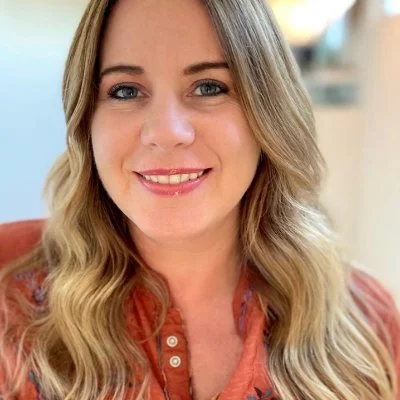

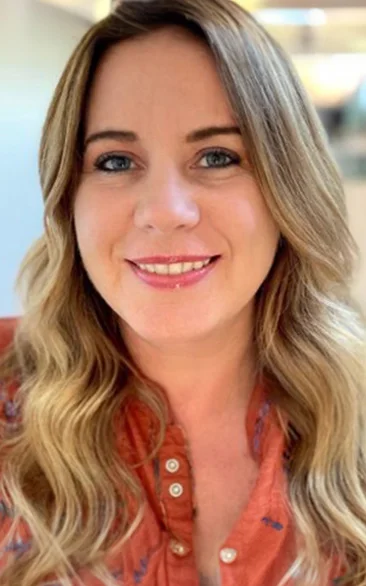
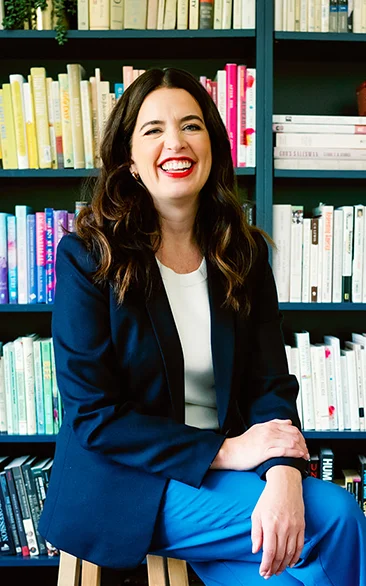








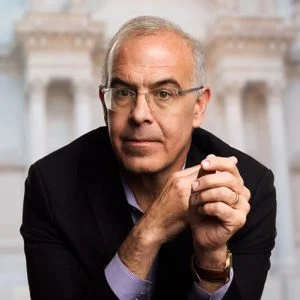
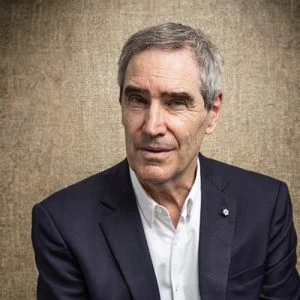
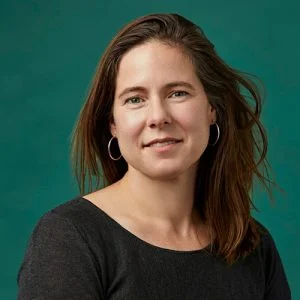

Leave a Reply